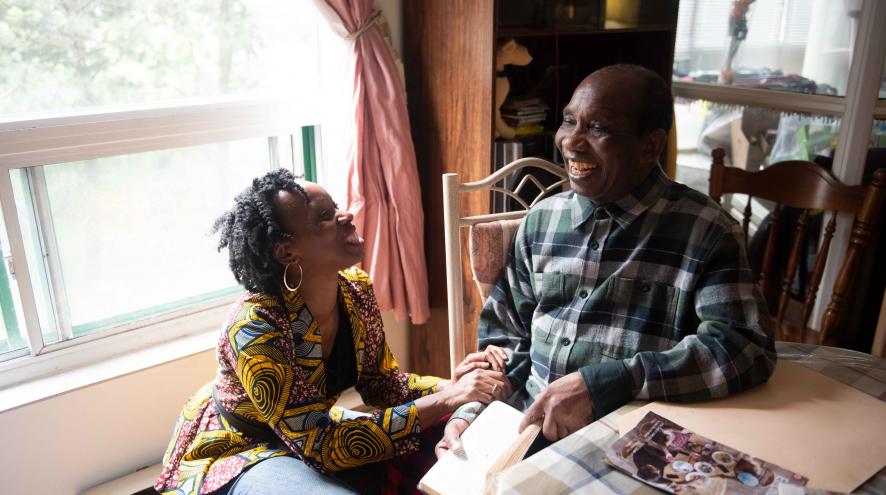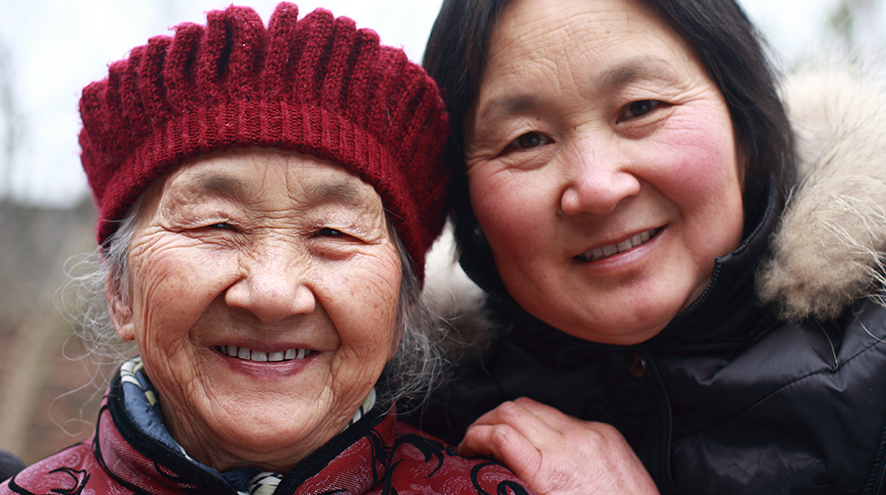Understanding how dementia is affecting culturally diverse communities across Canada
Work is underway at the Alzheimer Society of Canada to ensure that dementia knowledge and care are readily accessible for people living with dementia and their carers in culturally diverse communities.

In 2021, the Alzheimer Society of Canada launched the national Dementia Journey Survey. The intent of this survey was to better understand the experiences of people living with dementia, with an intentional focus on Black, Indigenous and People of Colour (BIPOC) communities. This survey was available in English, French, Hindi and Chinese.
At the survey’s close, we received over 500 responses across the country, with a quarter of respondents self-identifying from a BIPOC community.
What we’ve learned so far

From an early analysis of the survey, we found that many respondents spoke of the barriers they faced – barriers that prevented them from seeking diagnosis and accessing dementia care, reinforced stigma and isolation, and more. Some of the barriers highlighted include:
- Gaps in education and support for physicians,
- Lack of culturally relevant community resources for people living with dementia,
- Access to specialists, and
- The need for improved communication by physicians around care and diagnosis, especially for people from different backgrounds who regularly face even more systematic hurdles.
The next steps

A special analysis of the experiences of BIPOC respondents is underway, and a complete report on the survey results will be made available within the year. This report will be shared through conferences and workshops nationally.
As well, the experiences shared by people living with dementia are already supporting the development of new resources and shaping programs provided by Alzheimer Societies across the country.
This also means creating accessible, culturally sensitive information in a wider variety of languages. In the coming months, the Alzheimer Society will introduce more resources on dementia in Punjabi, Traditional Chinese and more – please see our developing page on dementia information in multiple languages. And we will continue to work with communities to understand and support their dementia needs.

The College of Family Physicians of Canada is continuing its partnership with the Alzheimer Society of Canada to build new and practical resources and guidelines to ensure family physicians are equipped to support all people living with dementia in Canada with consideration for their cultural needs.
Questions or thoughts?
Please connect with:
Dr. Saskia Sivananthan
Chief Science Officer, Alzheimer Society of Canada
SSivananthan@alzheimer.ca
For further reading

On becoming a caregiver in your 20s. Alzheimer Society of Canada, March 8, 2021. Ngozi is the primary caregiver for her father, Felix, who was diagnosed with dementia in 2008. At diagnosis, Ngozi was in her 20s and working on her master’s degree. As a young caregiver, she’s faced unique challenges. This is her story.

Equity, diversity, and inclusion in dementia diagnosis: a Canadian perspective. Ngozi Iroanyah; Marie Y. Savundranayagam; Reanne G. Mundadan; Dr. Saskia Sivananthan; September 21, 2021. Learn more about the barriers surrounding dementia that are facing racially diverse communities in Canada, with recommendations that can address these challenges. Note that this article originally appeared in World Alzheimer Report 2021: Journey through the diagnosis of dementia (pgs. 235 to 237) from Alzheimer’s Disease International.

You are not alone. Dr. Saskia Sivananthan, April 26, 2021. The pandemic has left people affected by dementia feeling isolated and burnt out. Your local Alzheimer Society can help.

Closing the gap in dementia research and support for BIPOC communities. Alzheimer Society of Canada, April 5 2021. The Alzheimer Society of Canada is launching initiatives to ensure diverse lived experiences are represented in dementia research, care and support.

Indigenous female caregivers' experiences for a loved one with memory loss. Dr. Danielle Alcock; Alzheimer Society of Canada; March 18, 2021. In this video presentation, researcher Dr. Danielle Alcock, member of the Chippewas of Rama First Nation, talks about storytelling in the lives of female Indigenous caregivers supporting a loved one with memory loss.

Our Advisory Group of People with Lived Experience of Dementia. Alzheimer Society of Canada. BIPOC voices and lived experiences must be present where decisions about programs, research and support for people living with dementia are made. That’s why we’re asking caregivers and people living with dementia, especially from BIPOC communities, to consider joining the Alzheimer Society of Canada’s Advisory Group.
Dementia information in languages other than English and French

Dementia information in Hindi, Chinese and other languages. Alzheimer Society of Canada. Find essential facts about dementia written in Hindi, Punjabi, Portuguese, Spanish and in Simplified and Traditional Chinese. More resources in more languages are coming soon.

中文資訊及服務 | Chinese-language information. Alzheimer Society of B.C. Access Chinese-language information on dementia, including education, support groups and online resources. Note that some information may be specific to people living in British Columbia.

Other languages. Alzheimer’s Disease International (ADI). ADI provides links to Alzheimer Societies across the world and sites with information in many languages other than English.
